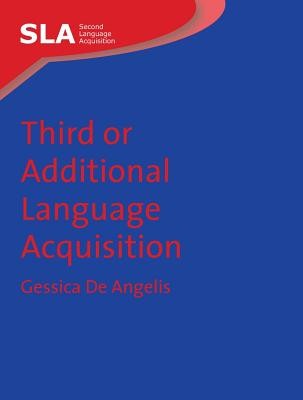
- We will send in 10–14 business days.
- Author: Gessica De Angelis
- Publisher: Multilingual Matters Limited
- ISBN-10: 1847690033
- ISBN-13: 9781847690036
- Format: 14.7 x 20.8 x 1.3 cm, minkšti viršeliai
- Language: English
- SAVE -10% with code: EXTRA
Reviews
Description
Third or Additional Language Acquisition examines research on the acquisition of languages beyond the L2 withing four main areas of inquiry: crosslinguistic influence, multilingual speech production models, the multilingual lexicon and the impact of bi/multilingualism on cognitive development. The book critically examines the evidence available keeping two main questions in mind. The first is whether multilinguals should be considered as learners and speakers in their own right and, consequently, whether the distinction between Second Language Acquisition and Bilingualism, and Third or Additional Language Acquisition and Multilingualism is fully warranted. The second is how proficient in a non-native language learners are supposed to be before they can begin to be classified as multilingual learners in empirical research
EXTRA 10 % discount with code: EXTRA
The promotion ends in 22d.21:19:58
The discount code is valid when purchasing from 10 €. Discounts do not stack.
- Author: Gessica De Angelis
- Publisher: Multilingual Matters Limited
- ISBN-10: 1847690033
- ISBN-13: 9781847690036
- Format: 14.7 x 20.8 x 1.3 cm, minkšti viršeliai
- Language: English English
Third or Additional Language Acquisition examines research on the acquisition of languages beyond the L2 withing four main areas of inquiry: crosslinguistic influence, multilingual speech production models, the multilingual lexicon and the impact of bi/multilingualism on cognitive development. The book critically examines the evidence available keeping two main questions in mind. The first is whether multilinguals should be considered as learners and speakers in their own right and, consequently, whether the distinction between Second Language Acquisition and Bilingualism, and Third or Additional Language Acquisition and Multilingualism is fully warranted. The second is how proficient in a non-native language learners are supposed to be before they can begin to be classified as multilingual learners in empirical research


Reviews